- Veneers are thin layers of material placed on the front of natural teeth. Veneers are a cosmetic treatment.
- Veneers are irreversible and involve filing down a large portion of the underlying tooth.
- The two most common types of veneers are composite (resin-based) and porcelain.
Find an affordable dentist for dental veneers and more.
Want to improve the appearance of your smile with veneers? Here's everything you need to know.
Who is a good candidate for veneers?
Veneers are generally a cosmetic procedure. They are recommended for teeth that are:
discolored,
chipped,
worn-down,
misaligned,
irregularly shaped,
affected by decay or disease,
Alternatively, injured in an accident.
You are a good candidate if you do not have missing teeth (in the place you want veneers), severe periodontal disease, or significant decay. There is a condition, however. Your enamel needs to be healthy enough to support them.
Types of veneers
Generally, permanent veneers can be composite (resin-based) or porcelain. You can also consider Lumineers or clip-in veneers.
Some materials are more durable than others. For many patients, appearance is most important. There are different options, depending on what you are looking for.
Resin veneers
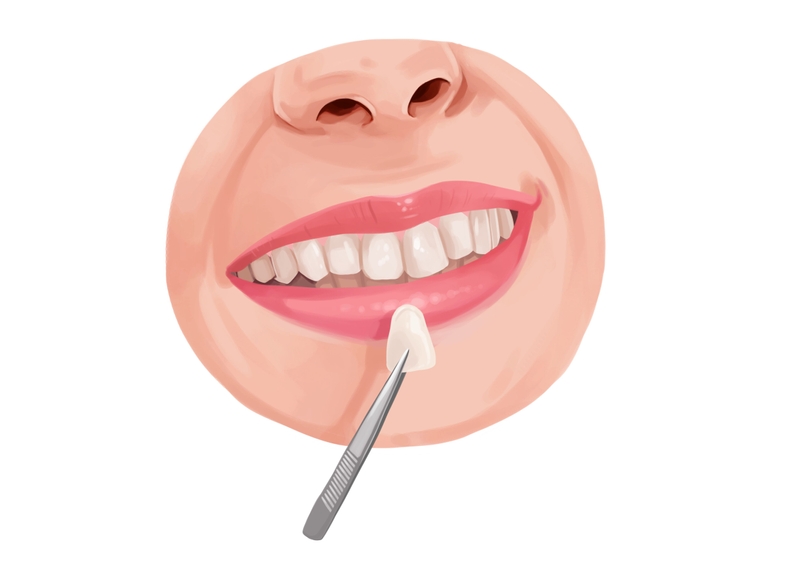
Picture by Authority Dental under CC 2.0 license
Composite veneers can be built directly on your tooth or (indirectly) in a lab. The latter takes longer to install in your mouth.

Compared with porcelain veneers, resin veneers look less natural and are less durable. This material stains similarly to your natural teeth and cannot be whitened. If they become discolored, you either have to deal with them or pay for new ones.
The good news is that you can easily and affordably fix resin veneers if they crack or chip. They can last 5 to 7 years, though with proper care, they could last even longer.
What is more, composite veneers can be made very thin. This means removing less of your natural enamel and putting less strain on the teeth.
Porcelain veneers
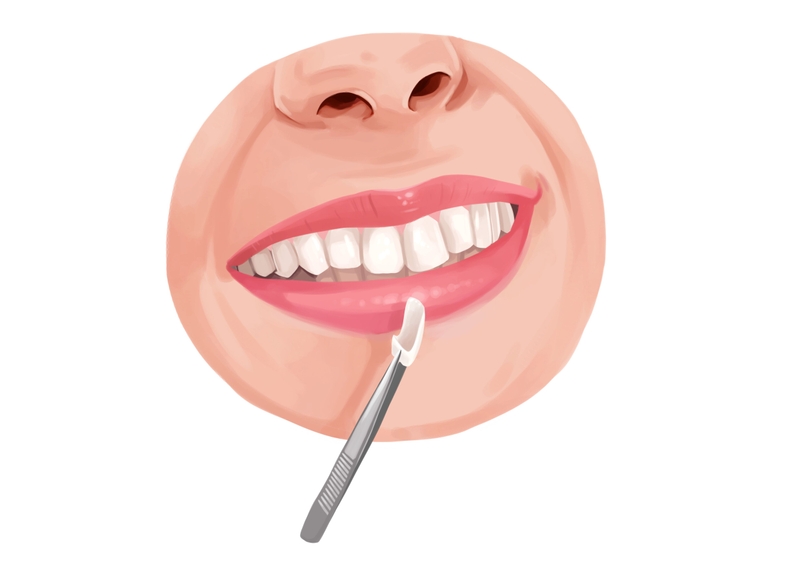
Picture by Authority Dental under CC 2.0 license
Porcelain is the way to go if what you are looking for is appearance. Such veneers appear like natural teeth. What is more, porcelain is stain-resistant, so you never have to worry about staining.
These are also more durable than resin; however, if they crack or chip, repairing them is costly. They might even need to be replaced.
Otherwise, you can expect them to last 15 to 20 years.
Lee explains: "The most critical part for a patient to grasp is that this is essentially a marriage. For traditional porcelain veneers, we remove a thin layer of enamel—the hardest substance in the human body—to ensure the shells do not look 'bulky.' Once that enamel is gone, it has gone forever. While Lumineers are marketed as 'no-prep' alternatives, they can sometimes create a ridge at the gumline that traps plaque if the dental anatomy is not exactly right."
Lumineers veneers
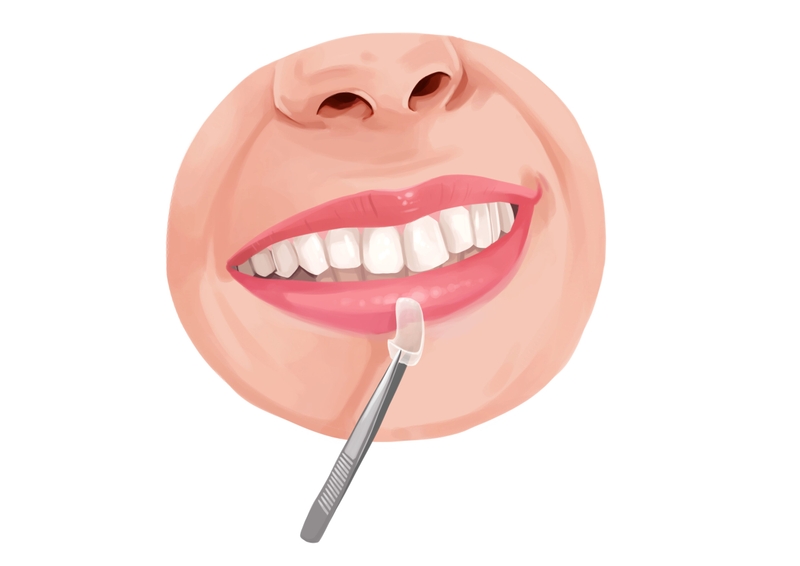
Picture by Authority Dental under CC 2.0 license
Lumineers are the only type that is reversible. This is the thinnest (about 0.2mm) type of veneer, so your teeth do not have to be reduced as much. Designed to resist wear and tear for up to 20 years, Lumineers are comparable in durability to porcelain veneers.
What is more, they are stain-resistant. You can choose the shade you like, and you will not have to pay for whitening. The translucent quality works great to mimic enamel.

If you do not have a severe orthodontic problem, you will be able to get them to make your teeth look more uniformly shaped and straight. Lumineers can be cheaper than tooth alignment treatment, such as braces, especially if you are looking to fix up a single tooth.
Snap-on veneers
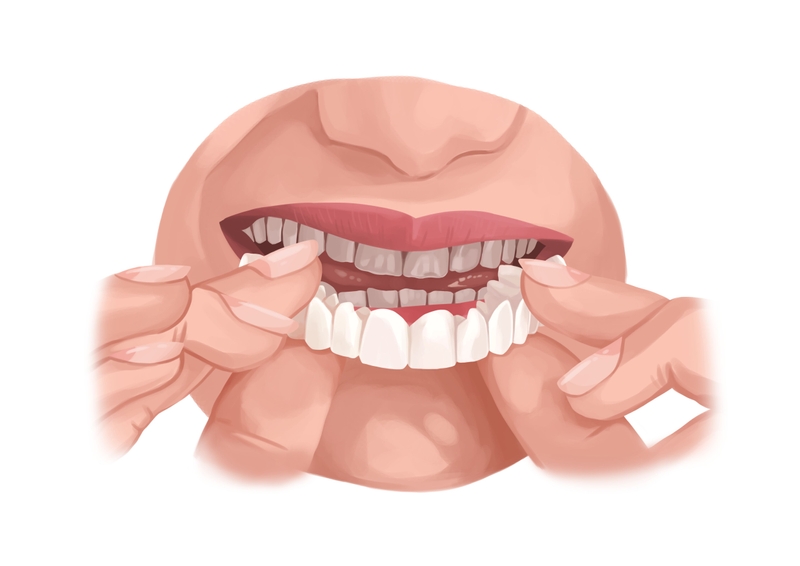
Picture by Authority Dental under CC 2.0 license
If you do not want a costly permanent solution, you can consider clip-on veneers.
Only one arch covers the front eight teeth. The material is different from that in the more expensive, permanent options.
The downside is that this is a solution for a couple of years at most, and you will have to replace them at some point.
The clip-on veneers are available online, so you do not have to make multiple appointments with the dentist. This saves a lot of greet-meet-and-sit time. It is still a good idea to have a consultation beforehand, however.

How are veneers put on teeth?
The veneer process can take longer than you would expect. It can take the dentist up to 4 weeks to get them back from the lab alone. If you strategically plan out your visits with your dentist, however, the whole process can be done in 2 appointments. There is no healing, as the procedure is non-surgical.
This overview may give you a general idea. Your dentist might decide that extra steps are needed or that some stages need to be spread out over several appointments.
First dental visit
During this visit, the dentist will check the overall condition of your mouth. He or she will judge whether you are a good candidate for veneers.
Prophy
You may need a dental cleaning before getting veneers. Remember, they are stuck to your natural teeth, so you cannot have any plaque or food debris in your mouth.
Diagnostic wax-up and X-rays
Once you establish a plan of action with your dentist, you will have your X-rays. A diagnostic wax-up might be made. It is a model of how your mouth will work after the procedure is complete.
Preparation
About half a millimeter of your tooth will be shaved down. An impression will be taken and sent off to the lab if you are going with porcelain. You will have to wear temporaries before the next visit. Resin veneers can sometimes be placed during this visit.
Placement
Once the veneers return from the lab, your teeth will be cleaned and roughened to make attachment easier. A special cement will be placed on your teeth. Ultraviolet light will help it harden quickly.
Check-up
You might have another visit with your dentist a couple of weeks later. He or she will check whether the veneers are properly fixed to your teeth and whether there are any other problems.
Veneers teeth pros and cons
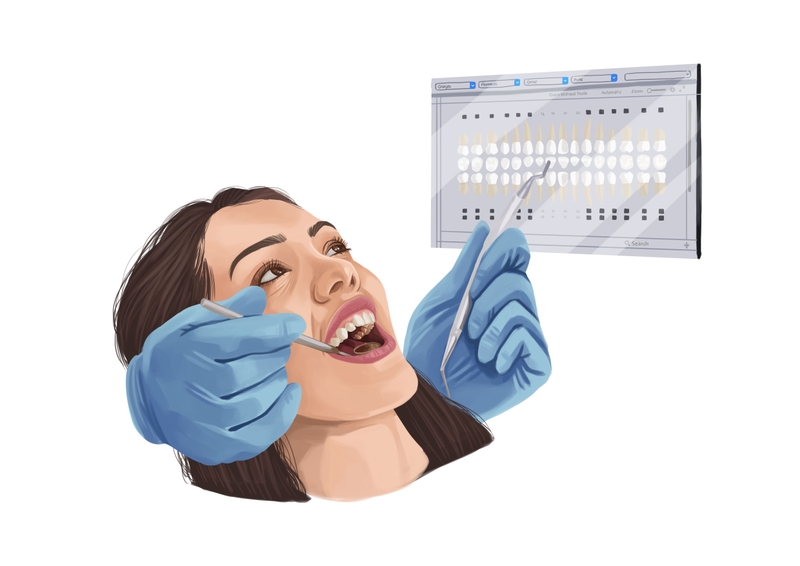
Picture by Authority Dental under CC 2.0 license
One of the most significant advantages of veneers is that they can fix a wide range of cosmetic issues. Compared with other solutions for uneven teeth, such as orthodontics, they are quicker and more affordable. You might not need more than two appointments, while braces or aligners might have to be worn for years.
Veneers look very realistic and are a popular choice among celebrities. It is easy to care for them, just as you would for your natural teeth.
On the other hand, the process is irreversible. You are making a life-long decision. What is more, wearing down your enamel may make your teeth more sensitive to sweet foods and to hot and cold temperatures.
A night guard will likely be recommended to protect the veneers. If they break, you may need new ones.

Moreover, lastly, not everyone is a candidate. Your dentist may refuse to place them if you have a history of gum disease or particularly fragile teeth.
More affordable than other cosmetic solutions such as crowns or implants
Great aesthetics
Can be done with as little as 2 appointments
Fix a wide variety of cosmetic issues
Care is similar to that of natural teeth
Irreversible
May make your teeth more sensitive
Nightguard might be needed
Not a good choice for everyone
FAQ
Is it painful to get veneers?
No. This process is non-surgical, and there is no healing period. It may be uncomfortable, but patients are almost always numbed for any unpleasant stages.
How long do veneers last?
Veneers, unlike implants, for example, are not designed to be a life-long fix free of maintenance. You can expect porcelain veneers to last about 20 years, while composite veneers last about 7.
This is true, of course, provided that you take proper care of them. Veneers are prone to damage, as are the teeth beneath them. It is important to visit the dentist regularly after having them installed.
Do veneers ruin your teeth?
The veneers process does, in fact, cause some damage. To place them, the dentist has to remove a portion of your tooth. You can never get it back. Veneers may have to be replaced at some point.
How to take care of your veneers?
Generally, you should maintain good overall oral hygiene, address teeth grinding if that is an issue, and wear oral protection during sports and similar activities. As with natural teeth, do not use teeth as tools, for example, to open letters or cans.
When it comes to your diet, resin veneers require you to avoid coffee, wine, and tea, as well as tobacco. Porcelain ones are not as restrictive, as they are stain-resistant.
How to whiten veneers?
Veneers cannot be whitened. There are some home treatments described online, such as rubbing them with baking soda, but these can damage your dental work.
The good news is that porcelain veneers are stain-resistant. If you know you are going to be drinking wine, tea, coffee, or smoking tobacco, you should invest in this more expensive material.
What are some alternatives to veneers?
Bonding is the most common and cheapest alternative. It involves adding a composite to your teeth. This can make them look more even and straight. It is also a good fix for broken or cracked teeth.
If you are looking at orthodontic issues, you may also consider braces. They can address even the most complex issues, such as gapped teeth, severe misalignment, or teeth protruding above the arch. Veneers can fix irregular, crooked, or misaligned teeth. The condition is that the problems have to be slight.
Some patients who are thinking of veneers end up with a dental crown. However, no dentist will fit a crown over a healthy tooth. There must be some damage, or the tooth must be missing, for you to be a candidate. In the latter case, you will also need a dental implant. Veneers are a much better option if the changes you want are cosmetic.
Linda Thomas, DMD
When patients walk in asking for veneers, they usually bring a photo of a perfect "Hollywood" smile. My first task is always to shift the conversation from the aesthetic to the structural. I often compare veneers to custom-made porcelain siding for a house. They can mask nearly any surface imperfection, but they are only as stable as the foundation underneath. In my practice, I have seen that the longevity of veneers depends less on the material and more on the patient's bite. If you grind your teeth at night, those thin porcelain layers will not last; a night guard is a non-negotiable insurance policy.